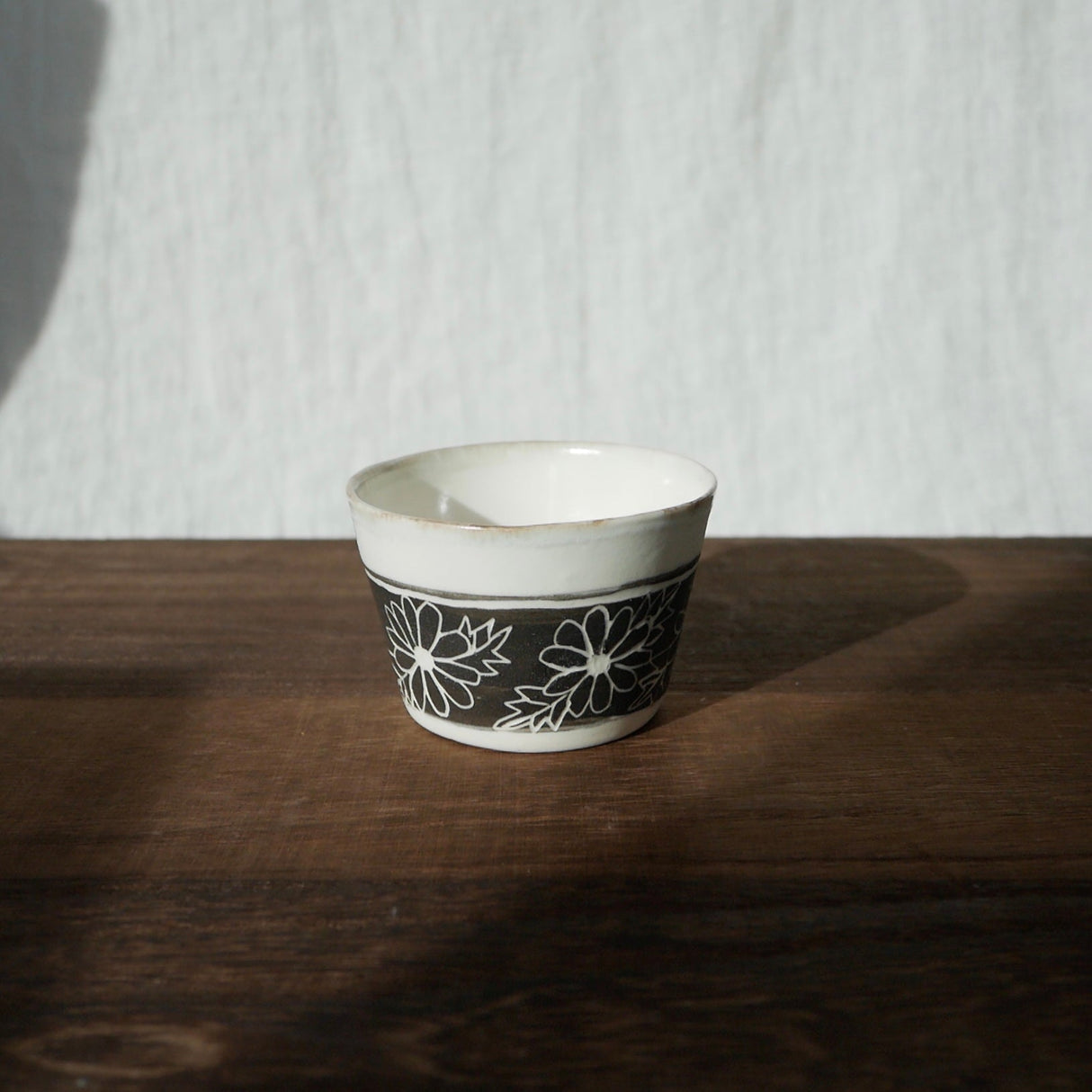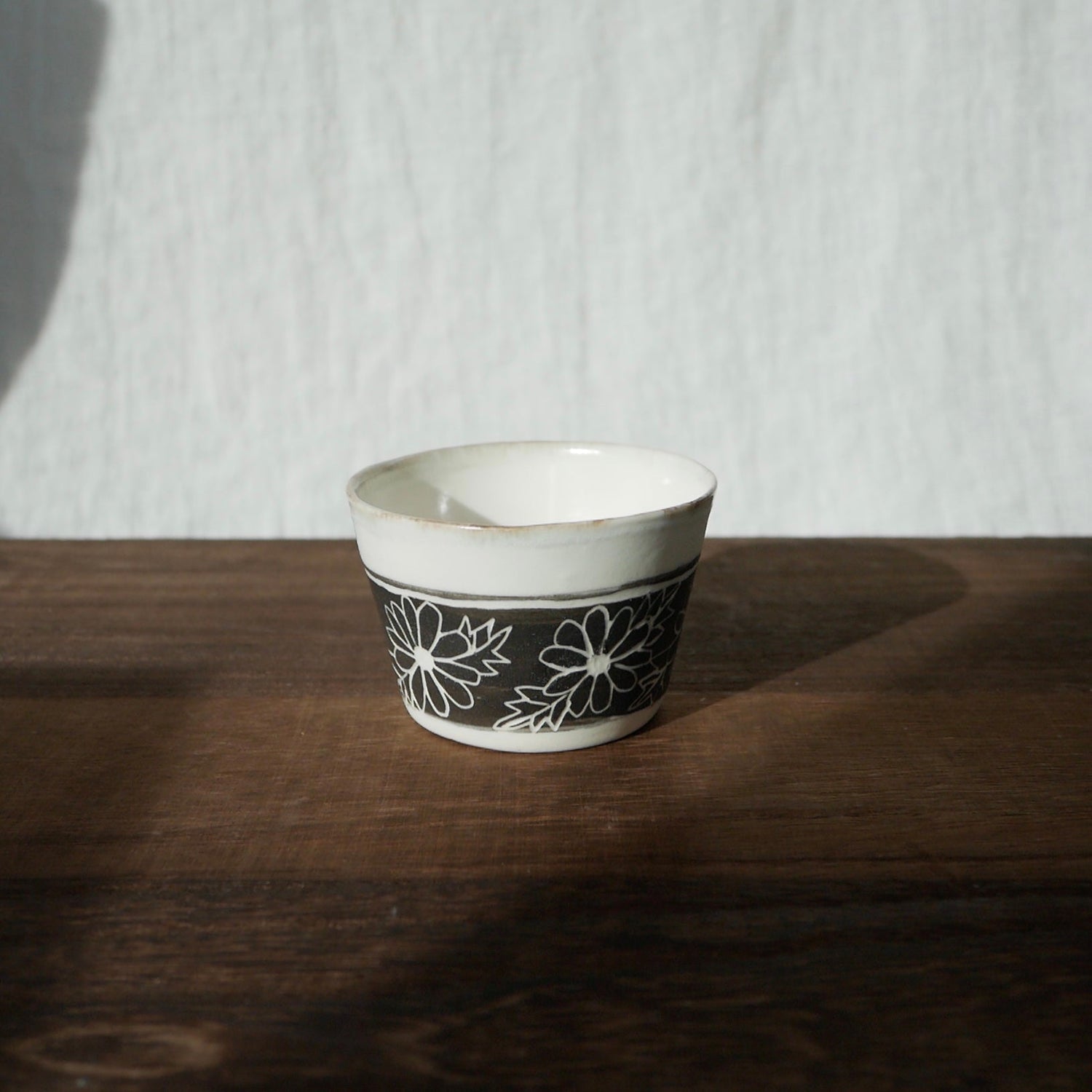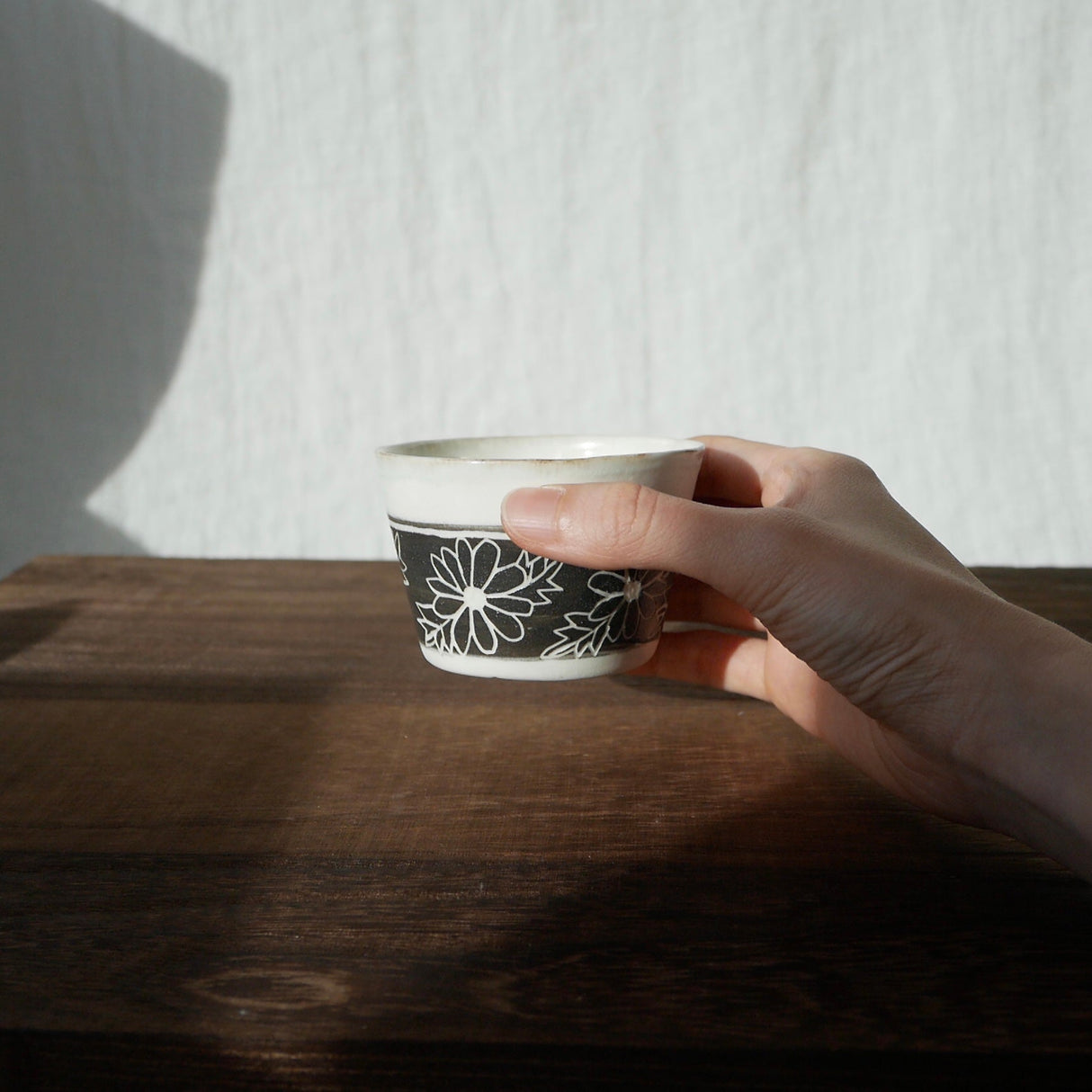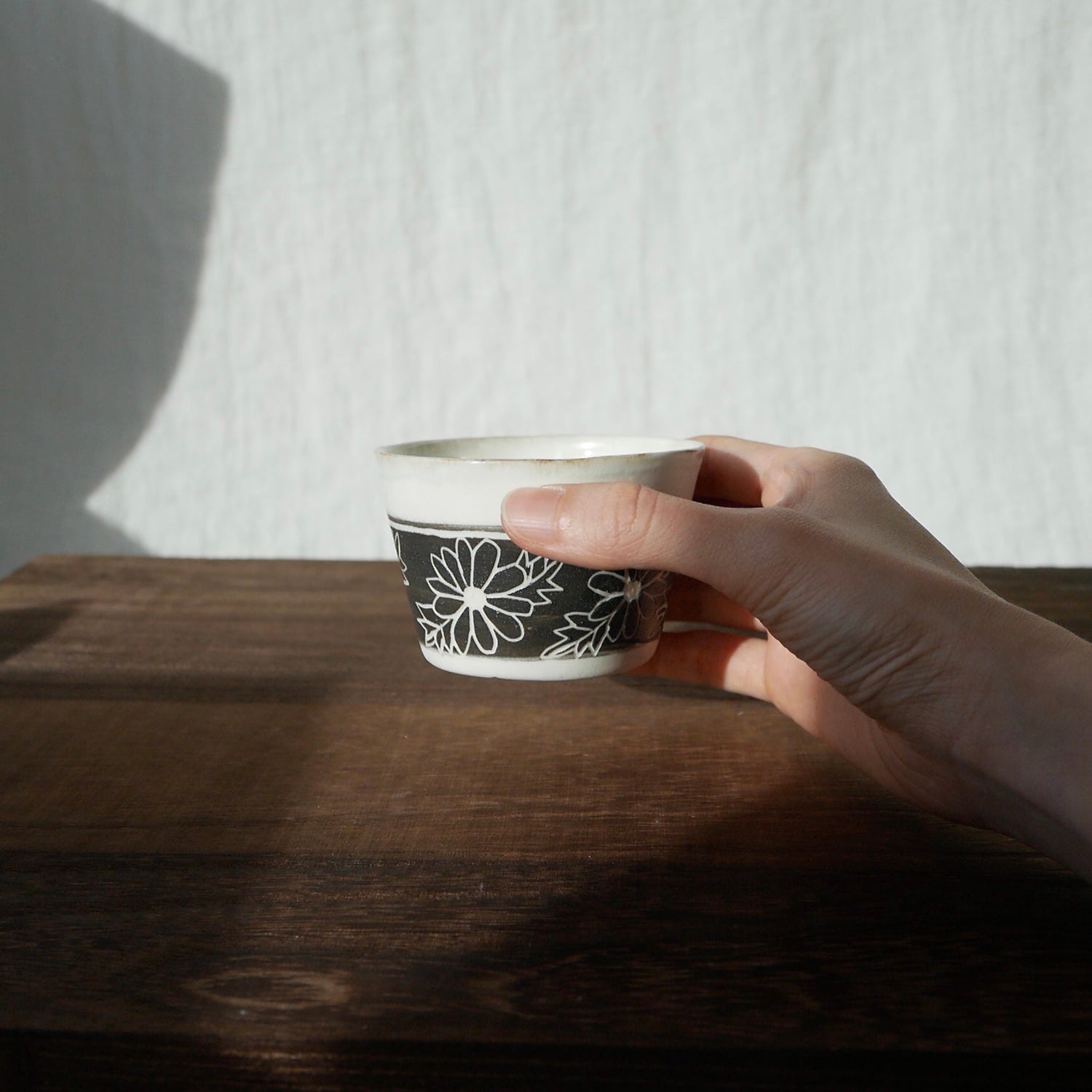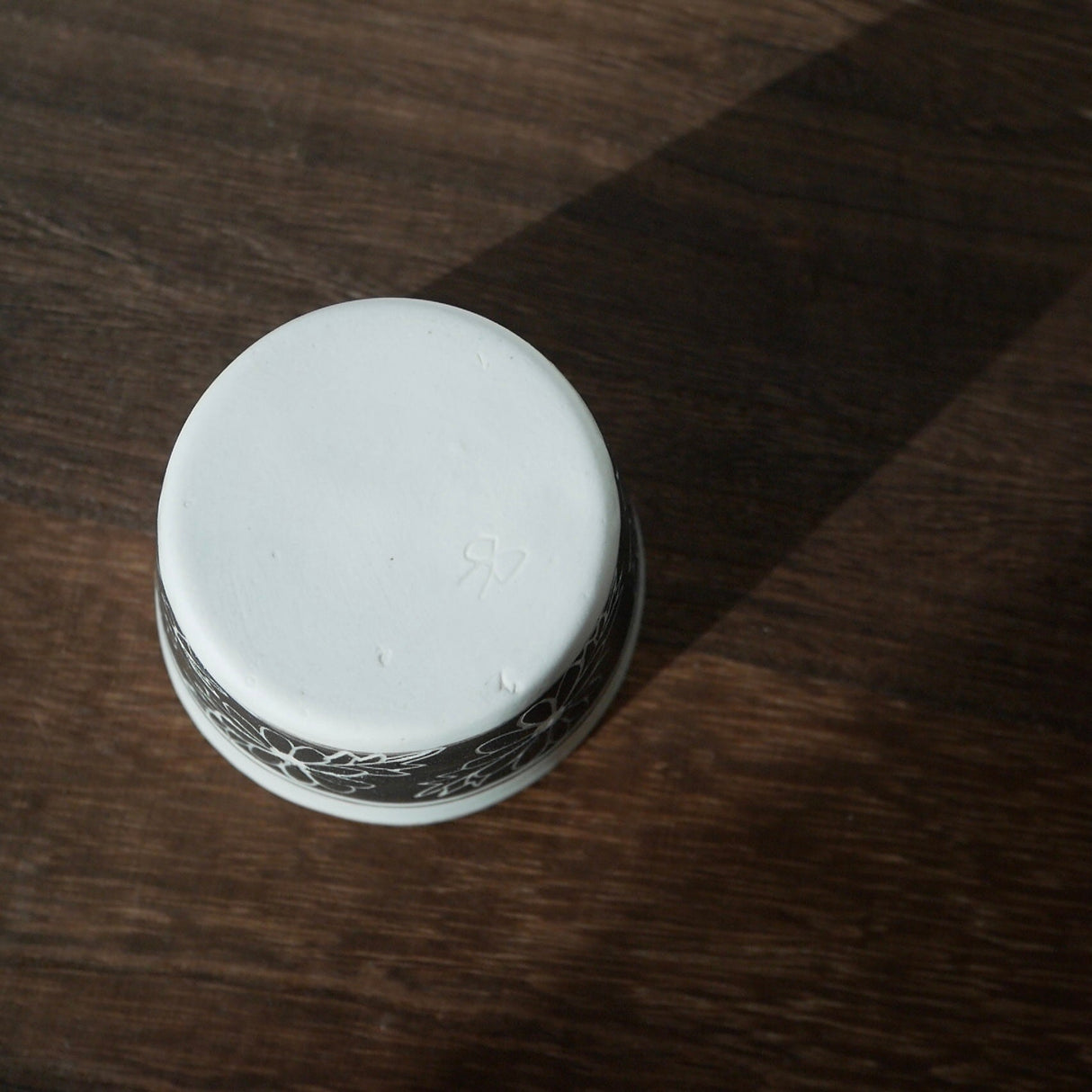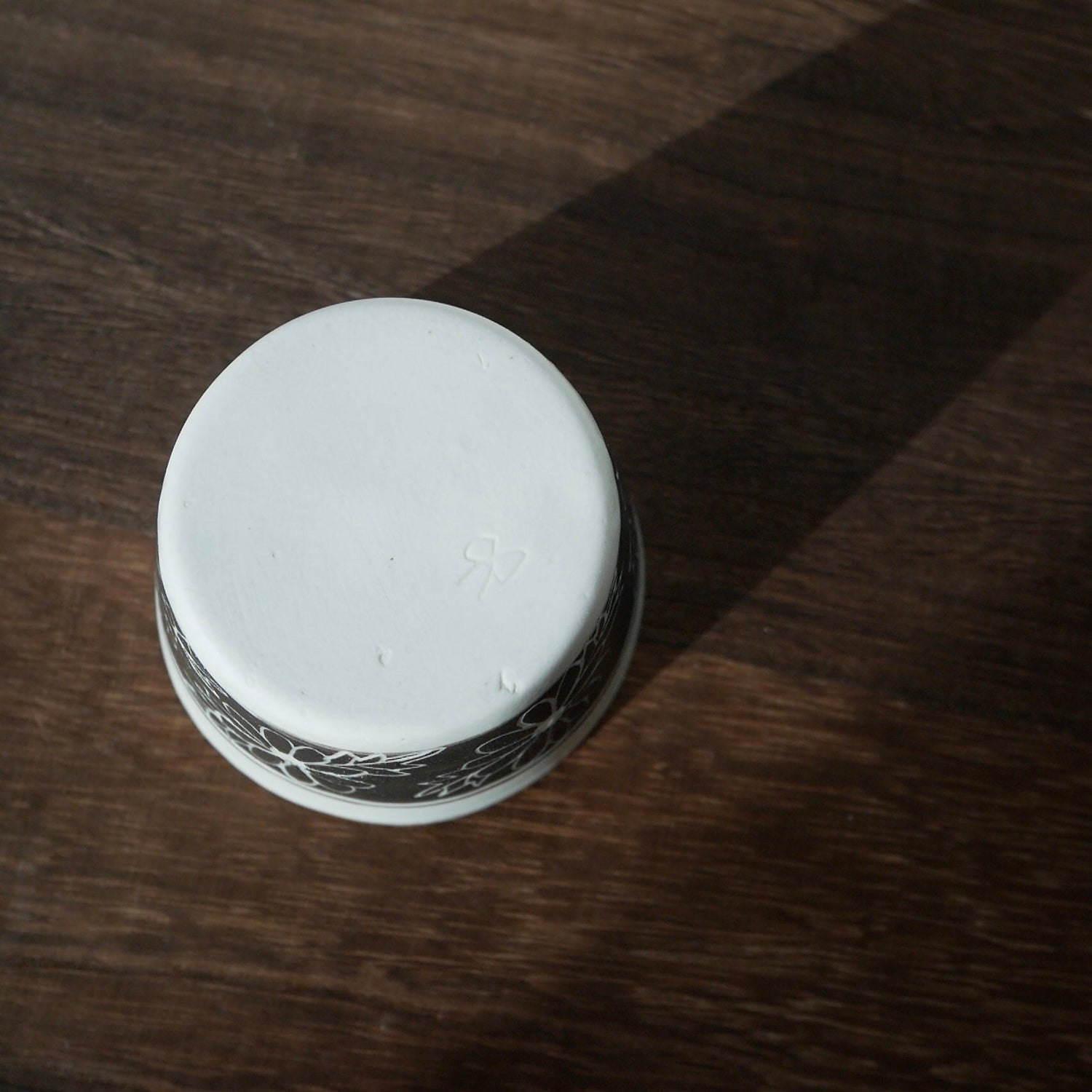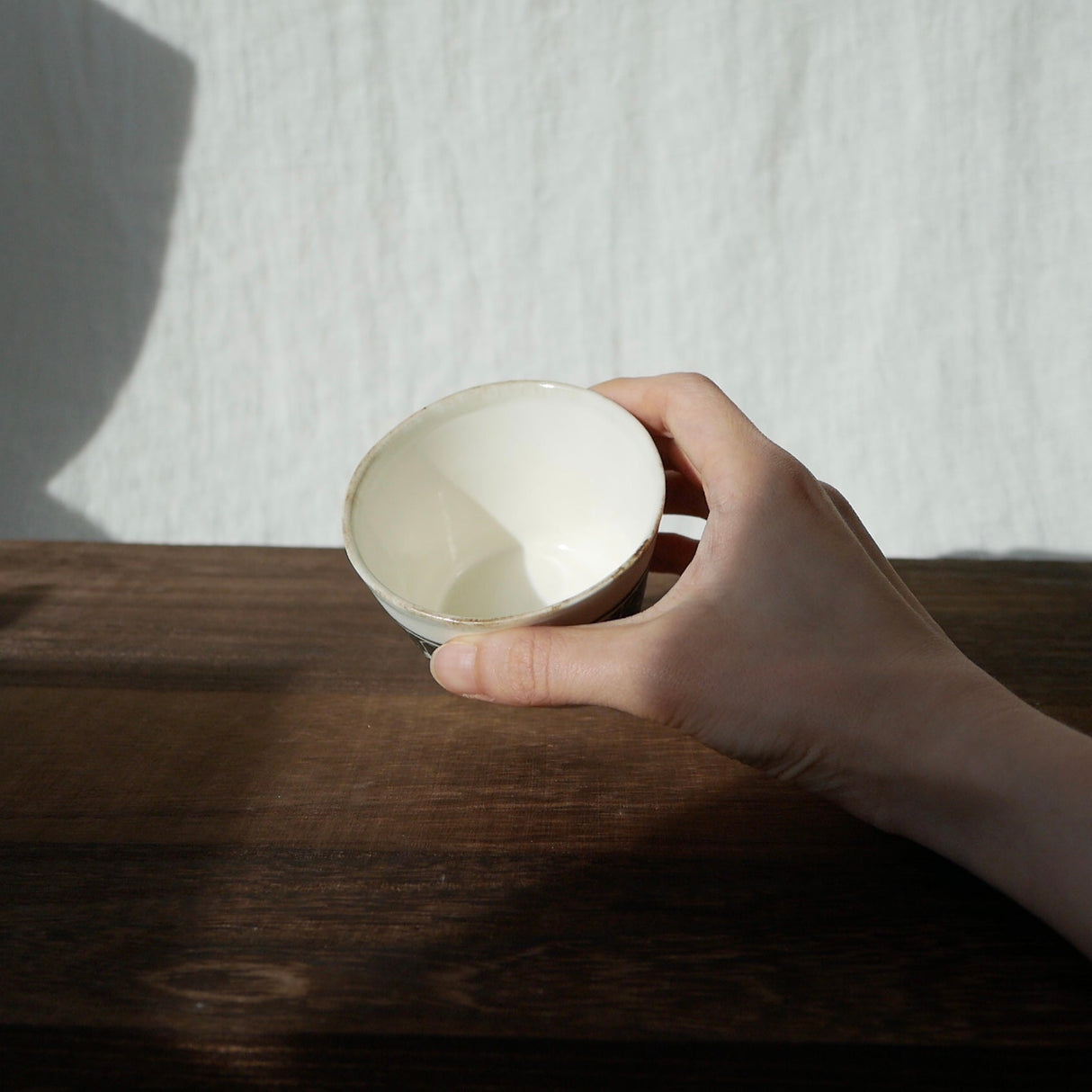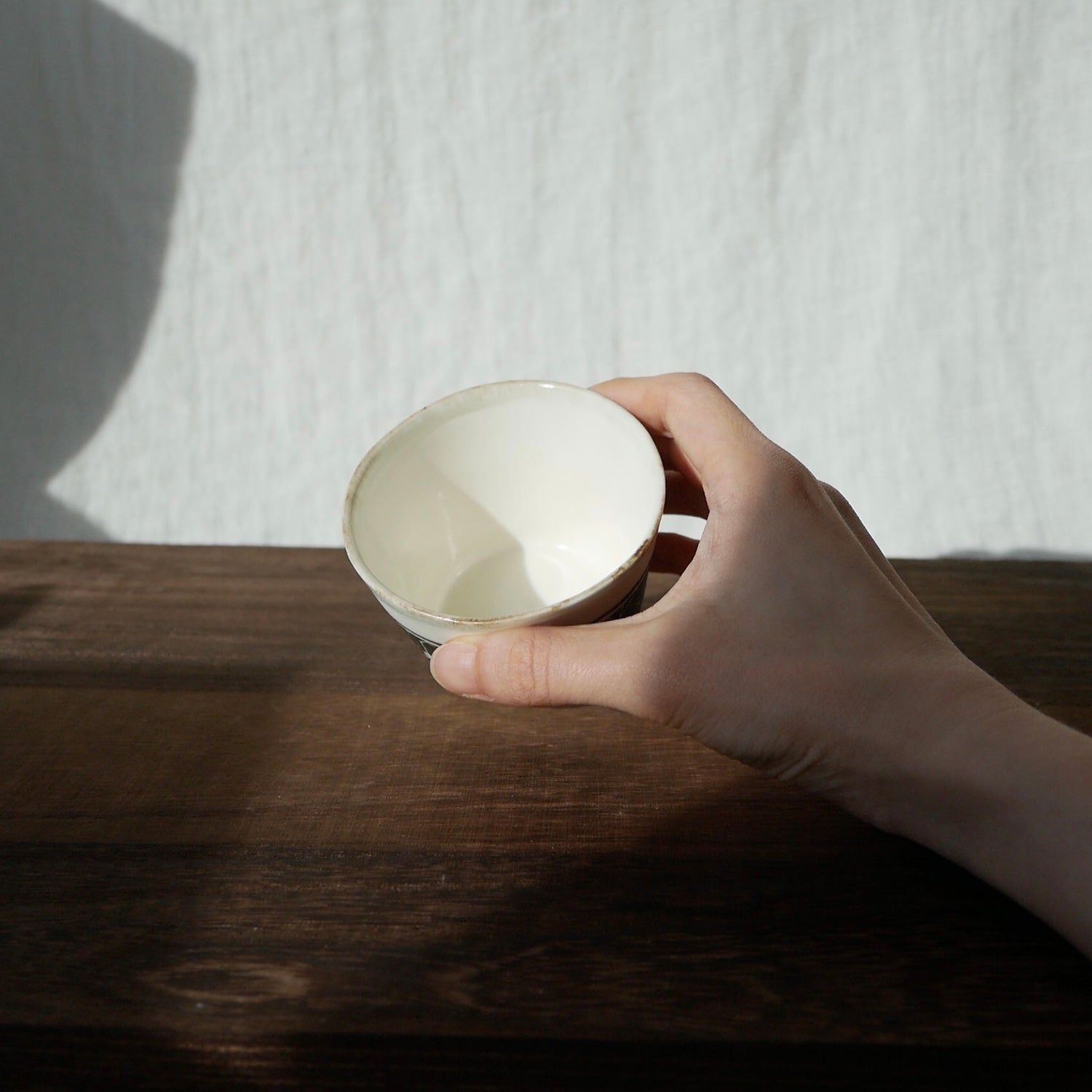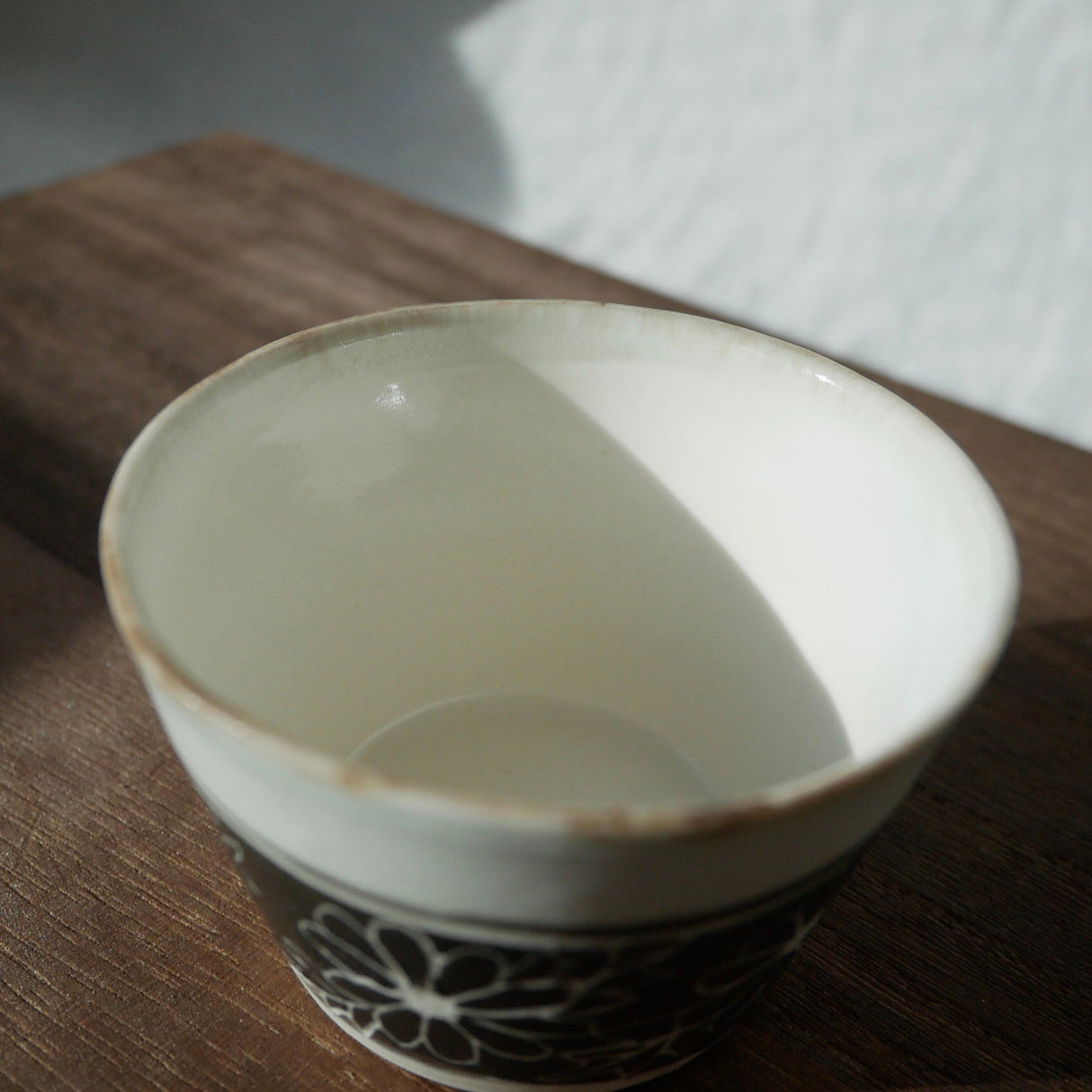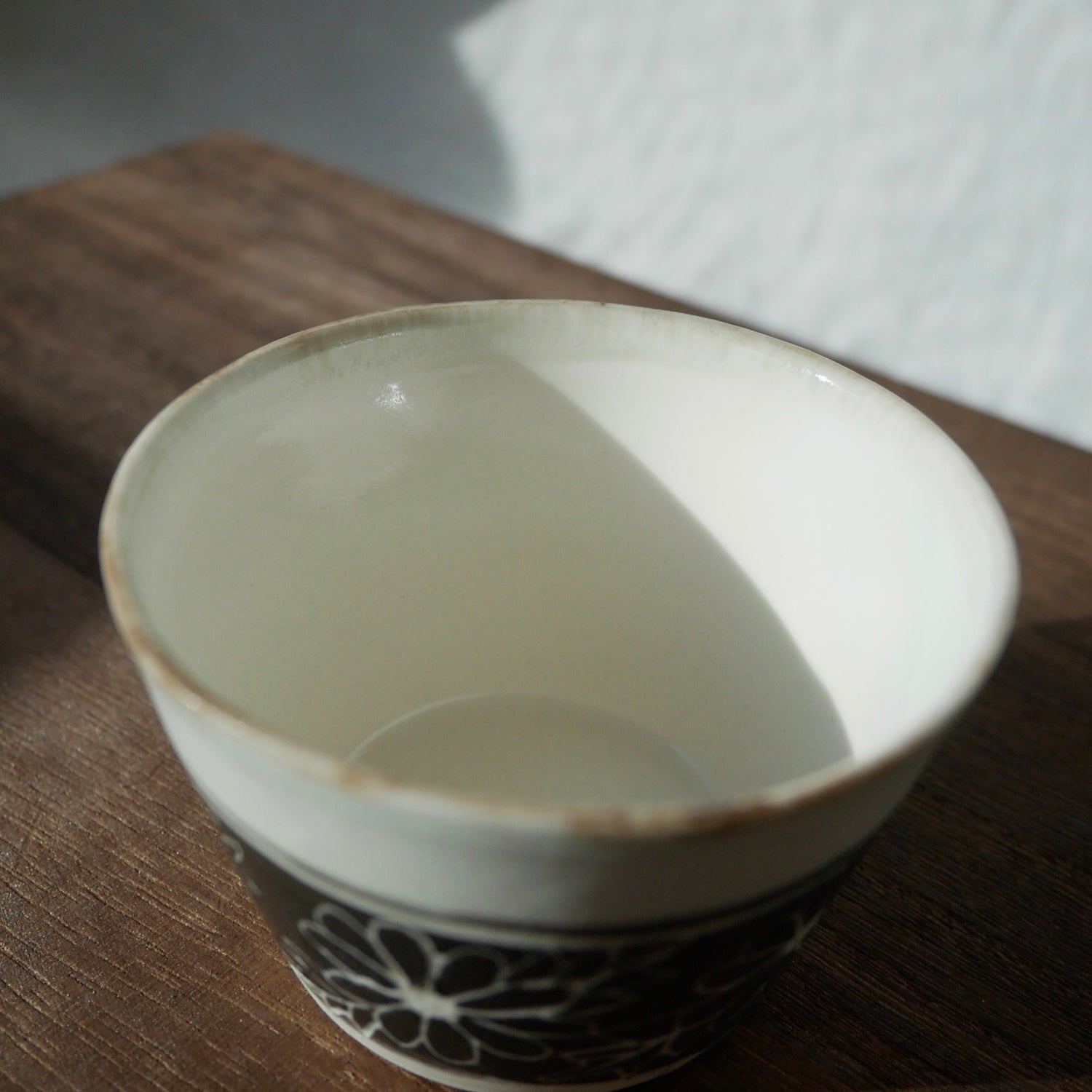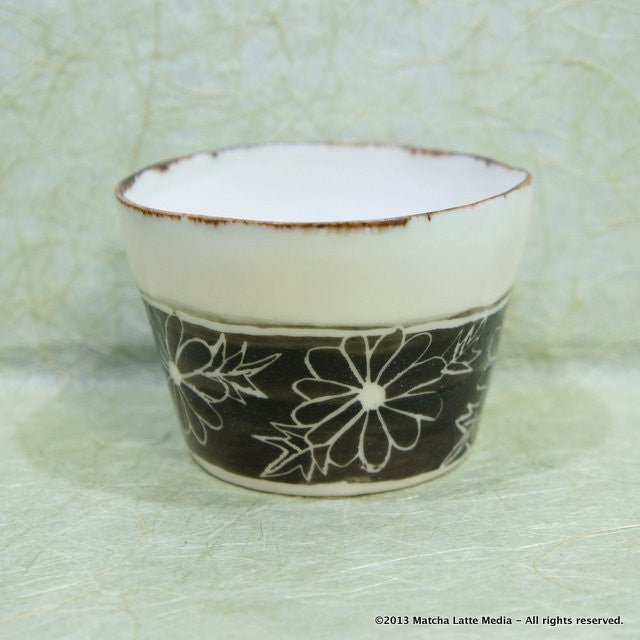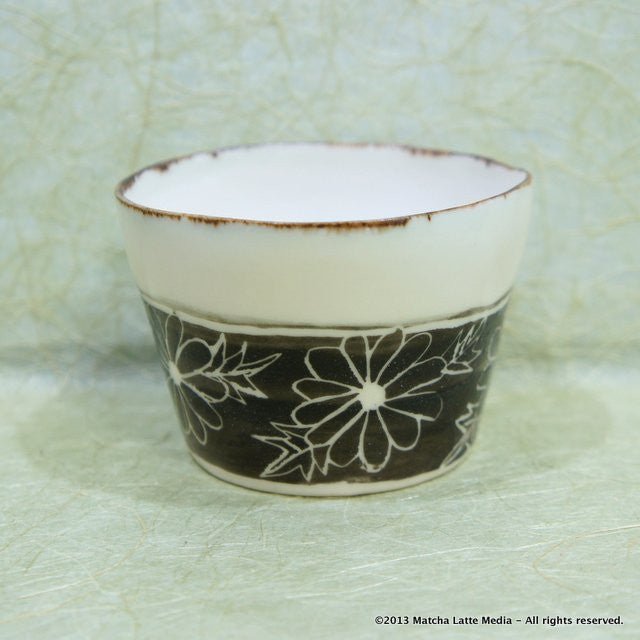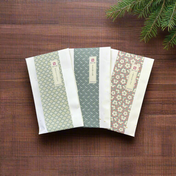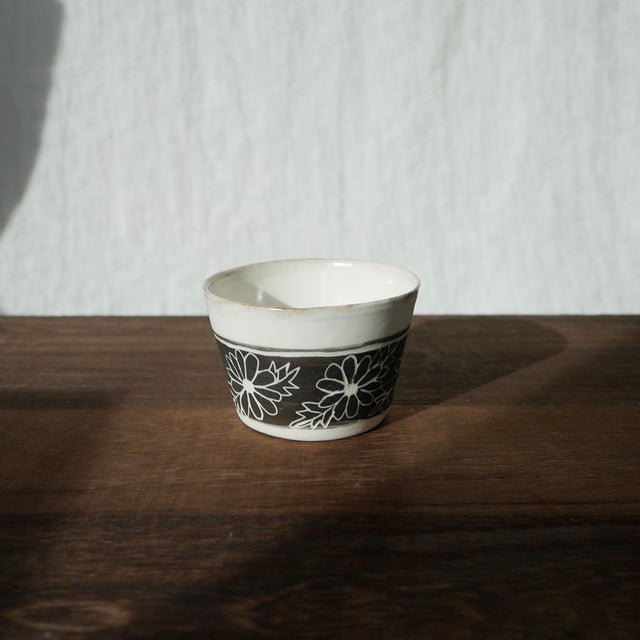中村香織:デイジーカップ
中村香織:デイジーカップ 【在庫切れ】取り寄せ中につき、入荷次第発送します。大きいサイズを小さい袋に小分けするには1-2週間、取り寄せは2-3週間がかかりますが、商品によって異なります。現在、各メーカーの抹茶生産は非常に時間がかかり、1-3ヶ月間がかかる場合もあります。
受け取りを利用可能か読み込めませんでした
商品が在庫切れの場合は、ウィッシュリストに追加して、商品が購入可能になったときにメールで通知を受け取れるようにしてください。
配送と送料について
配送と送料について
送料は国、配送業者、配送方法によって異なります。商品を在庫に追加し、カートページに移動して送料見積もりツールをご確認ください。一部の国では、ご購入後に手動で送料を計算する場合があります。
YUNOMI.LIFEの配達保証:追跡番号付きの航空便で発送されるすべての注文の配達を保証します。 (条件が適用されます。通知された例外。)まれに、輸入のために追加の通関手続きが必要になる場合があります。私たちは最大限に支援いたします。お客様の過失によらず、発送から1ヶ月以内に注文が届かない場合は、追加料金なしで注文を交換または返金いたします。お客様の住所への配達が困難であると判断した場合、当社は出荷を拒否する権利を留保します。この保証は、受取人が通関手数料および輸入税の支払いを怠ったり拒否したりした場合、郵便局または配送センターで保留中の注文の受け取りを怠った場合、または間違った住所のために注文が配達できない場合には適用されません。Yunomi.lifeの配達保証は卸売購入には適用されません。
壺屋焼:日本の最南端に位置する沖縄県は、かつて500年以上(1372年から1879年)にわたり王国として栄えました。琉球王国とその周辺で発展した社会・文化は、東南アジア、中国、朝鮮半島、そして日本を結ぶ交差点でした。壺屋焼は琉球文化の伝統的な焼き物技術であり、日本全国で広く知られています。近年、沖縄の窯元は大変人気があり、3ヶ月に一度開催される市場では、買い手が2~3時間も行列を作るほどです。
製品情報
- 直径
- 7.5 cm (2.95 インチ)
- 身長
- 4.8 cm (1.89 インチ)
- 音量
- 140 ml (4.76 fl oz)
- 重さ
- 55.5グラム(1.96オンス)
- 上記の測定値は概算です
- 材料
- セラミック
- 注記
- 洗浄には中性洗剤と柔らかいスポンジまたは布をご使用ください。食器洗い機や電子レンジは使用しないでください。
- アーティスト名
- 中村香織(詳細は下記)
アーティスト解説:中村香織

「光と影、雰囲気と質感…
これらを念頭に置き、感覚を刺激する作品を制作していきたいと考えています。」
(原文をカオリが翻訳)
アーティスト、中村デュラフォーグ香織について
アーティストの中村香織は1981年、千葉県生まれ。沖縄で陶芸を学び、2005年に沖縄県立芸術大学工芸科陶芸専攻を卒業。卒業後は同大学に残り、同学科の非常勤アシスタントとして勤務。同年、那覇市前島アートセンター高砂殿にて、4名(全員女性)と共に「neutral space [cotef]」を企画・運営。
結婚と出産を機に、数年間千葉に戻りました。2009年に陶芸家として再出発を決意し、2011年に再び沖縄へ移住。現在はアヴルン陶芸教室で講師を務める傍ら、アトリエ「プチパピヨン」として陶芸作品を制作しています。
過去の展覧会
2005年:那覇市前島アートセンター高砂殿にて「ニュートラルスペース[cotef]」を企画・運営
2006年:カフェmofgmonaにて「境界線を泳ぐ」展開催
2007年:Cafe UNIZONにて個展「龍子のイド 粒子の移動」
2009年 個展「bonne soiree」(Cafe ue)
2010年:suupu-ya すーぷやひゅげにて展覧会「日々展」開催
2012年 kufuuにて「白に浮かぶ色 白に浮かぶ色」展
支払いのセキュリティー対策
支払い方法
お支払い情報は安全に処理されます。当社はクレジットカード情報を保存したり、お客様のクレジットカード情報にアクセスしたりすることはありません。

